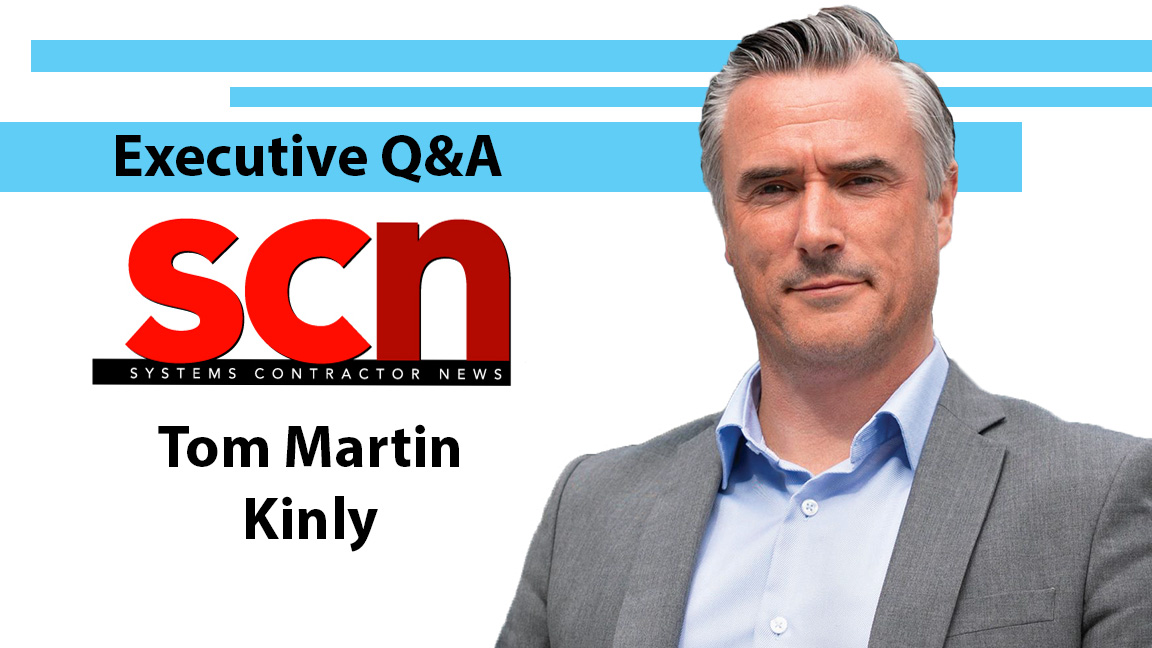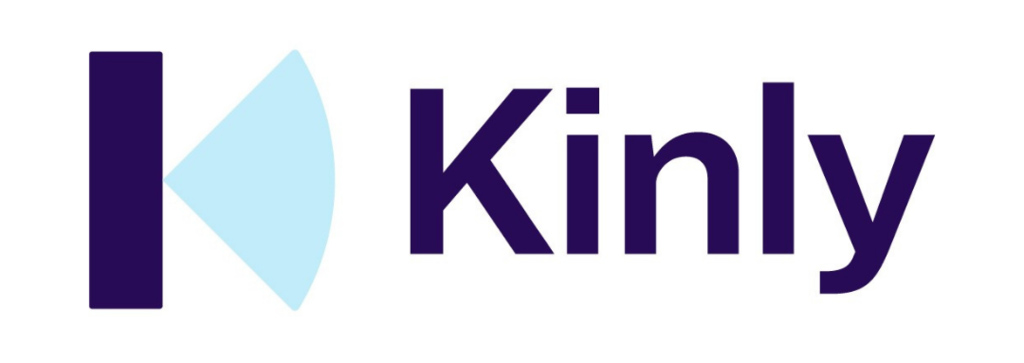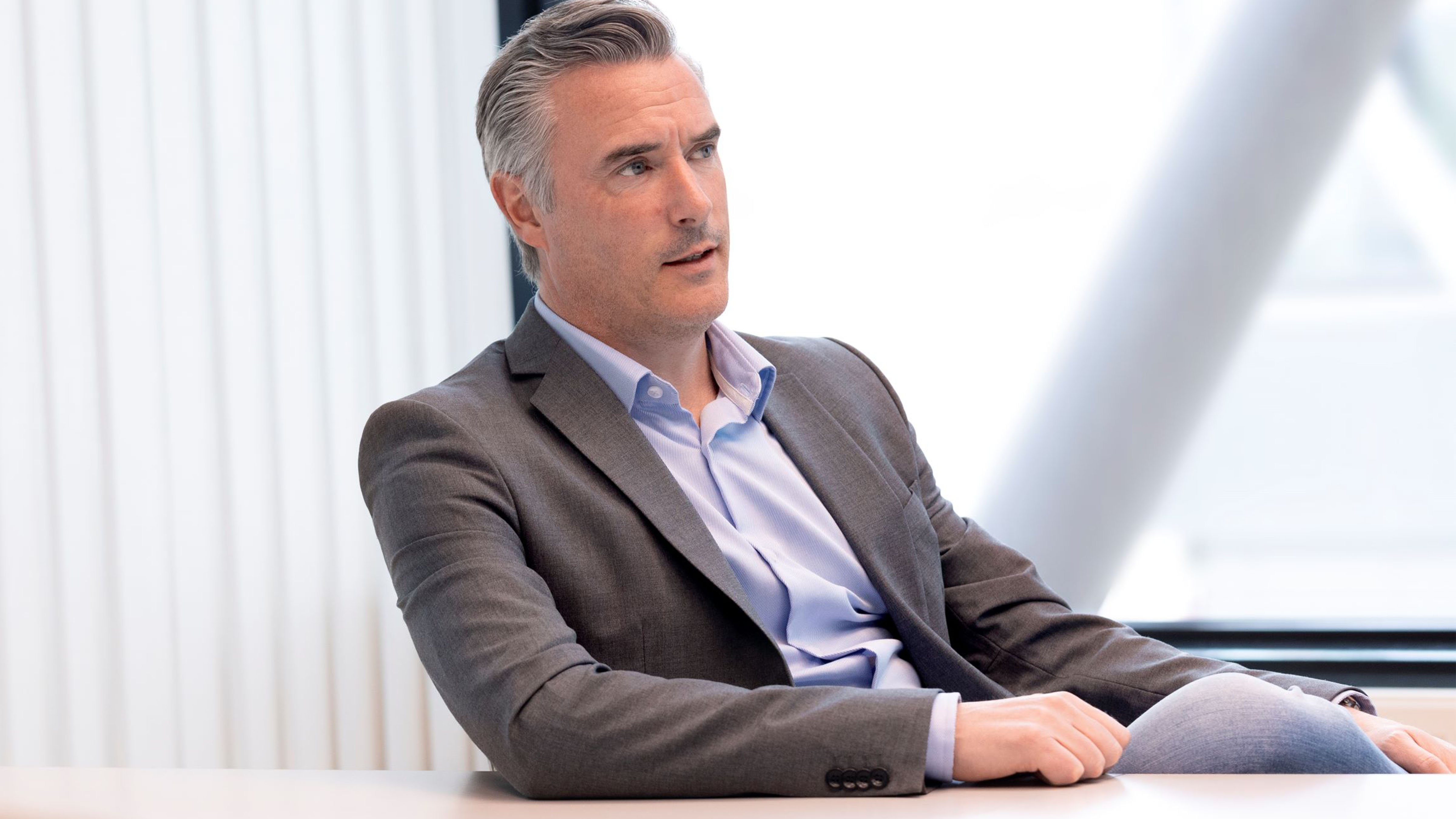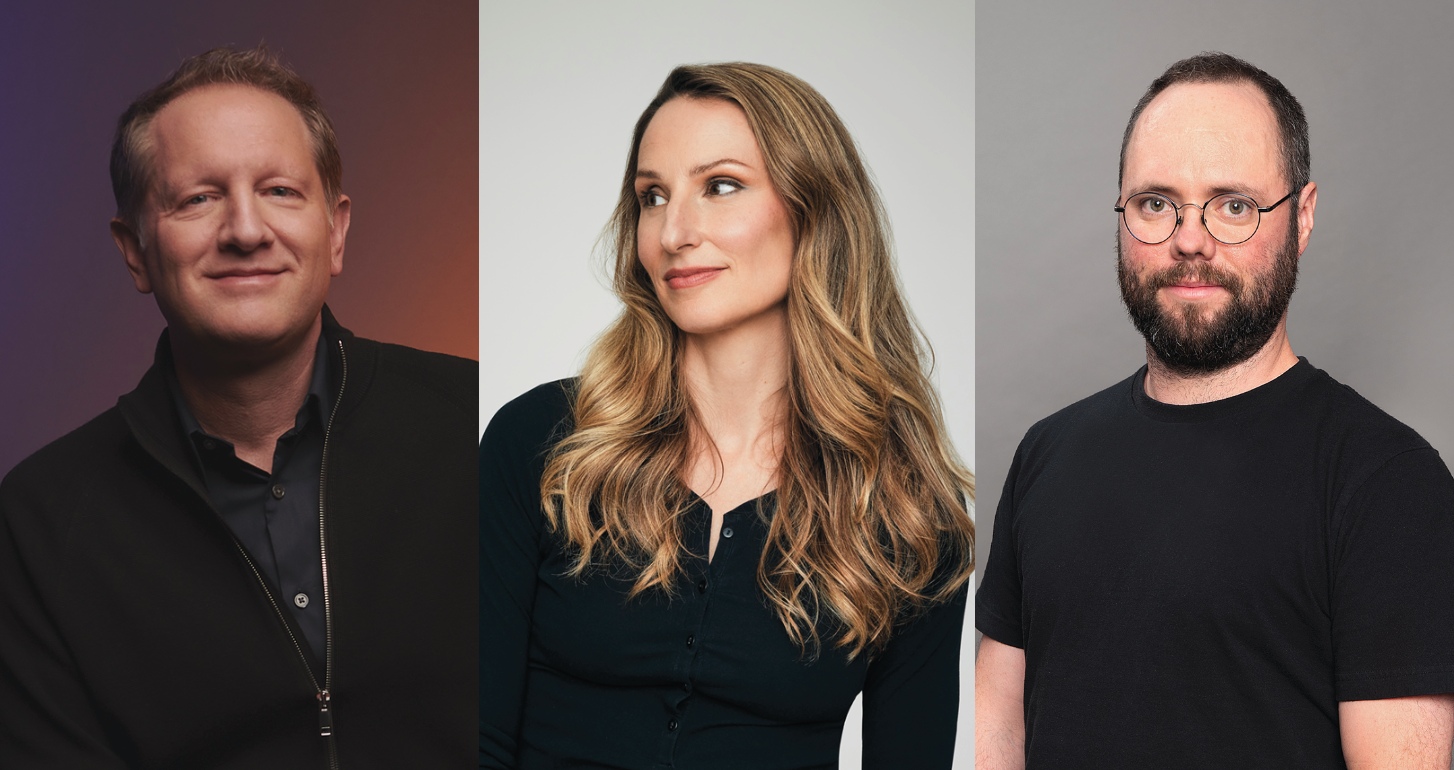SCN Exclusive: New Kinly CEO Martin Sets His Sights on U.S Market Growth
The 15-year company veteran emphasizes a corporate culture of teamwork and sustainability.

A daily selection of features, industry news, and analysis for AV/IT professionals. Sign up below.
You are now subscribed
Your newsletter sign-up was successful
In June, Kinly announced Tom Martin, a 15-year company veteran, as its new CEO. While the company's headquarters are in Amsterdam and he's based in the Norway office, Martin is looking to grow the company's worldwide business, particularly in the United States.

Starting as a service coordinator, Martin has successfully climbed the ranks during his time at Kinly. Most recently, he served as managing director and executive vice president for Norway and Northern Europe. “Under his management, we have seen Kinly become the number one player across Europe," said Jos Zandhuis, chairman of the Kinly board of directors, "so we have the fullest confidence in his ability to lead Kinly through its next phase of growth and development."
In an exclusive interview, Martin provided SCN with some answers about Kinly's corporate culture and sustainability efforts, as well as how the pandemic changed the Pro AV industry.
SCN: Congratulations on your new position. With your track record, we know why Kinly wanted you as CEO, but why did you want the position?
Tom Martin: Firstly, thank you your kind words. It’s been an incredible journey for not just me but for everyone at the company, and it’s a position I’m truly enjoying and embracing. It’s a true acorn to oak tree story. I’ve seen this company and its incredible teams grow significantly over the past 15 years, going from a single small business in Norway to a globally recognized leader in the AV and video collaboration industry. Today, we have more than 1,200 employees, 2,500 customers, 20 offices in 12 different countries, and annual turnover of $261 million. That’s some growth. The incredible thing is, I still feel like we’re only just getting started—and I’m so excited about the future and what we as a business can go on to achieve. For me, as CEO, the hard work really starts now.

SCN: Did you have ambitions to become CEO?
TM: When I first arrived in Norway from Ireland, I had no job and no real career plans to speak of. A recruitment agency pointed me in the direction of a small company called Infoteknikk based in Stavanger [southwestern Norway], which would later become Kinly. I became their service coordinator. I had a history with music and audio technology, so they just thought it might be a good fit. It was.
On joining, I became employee number 27, and I was just happy to have a job. It was a small team with some big ambitions.
A daily selection of features, industry news, and analysis for AV/IT professionals. Sign up below.
[Kinly named Logitech’s EMEA ‘Services Partner of the Year’]
Did I expect to one day be a CEO? Absolutely not. But as a team we grew, identified some great growth opportunities, particularly around support and value-added services, and things really snowballed. The company kept growing and I continued to climb the ladder. In 2017, I become managing director and executive vice president for Norway, with the role later extended to Northern Europe, including the U.K. in 2020. In May this year, I was named CEO.
SCN: That’s quite an inspiring story.
TM: People often don’t believe me when I tell it to be honest. I recently spoke to someone who had just become a new service coordinator and explained how that’s where I started. I don’t like to hold myself up as some kind of role model, but I want people to be inspired by my journey and to believe and understand there are big career opportunities within Kinly. We want our people to progress, and we pride ourselves on providing the right levels training and the right opportunities to further their careers.
SCN: As CEO, what sort of corporate culture are you bringing to Kinly?
TM: The foundations of this business are built on having a strong team—in my opinion, the strongest in the industry. When we bring people to Kinly, it’s not just their abilities we look for; they also have to fit the business culture, and that centers around providing exceptional levels of service. It’s that culture that has continued to bring us success and how we are perceived in the market.
SCN: What is Kinly go-to-market strategy?
TM: We are currently active in 5 regions: U.S., U.K. and Ireland, Benelux, Norway, and Asia. We have global delivery capabilities for large enterprise services. It is possible this footprint will be further expanded in Europe, and we are currently growing organically in all regions. We focus on three core customers segments: local corporates, public sector, and global enterprise.
The pandemic has opened people’s eyes on how important collaboration technology is, and probably accelerated the UCC market by around 10 years.
Tom Martin, Kinly
Here at Kinly, we pride ourselves in offering a brand-agnostic approach when supporting customers with their AV and UCC solutions. We work with hundreds of different leading partners to ensure we can select a solution based on the client’s current needs, rather than our own. Instead of starting with technology, we cooperate to examine our client’s needs, wants, and spaces before we design a proposition. Regardless of project size, we support every part of the process from start to finish to ensure a lasting harmony between the solutions we provide and the people who use them.
SCN: What are your plans for growing Kinly’s presence in North America?
TM: Kinly U.S. is actually something of an unsung hero, going largely under the radar, but this arm of the business has been crucial for us from a client management perspective—and has been successful in the years since we have been present. We have two main office locations on the East Coast in New Jersey and New York, with a team of around 100 people. That’s a figure that will continue to increase in the coming months as we further grow our business in the region.
[SCN Top 50 Systems Integrators 2021]
Our focus as a business is to be able to support larger clients with all their AV and UCC needs, and we work many Fortune 500 companies in the U.S. These are very major accounts, where reliability, quality, and security are absolutely crucial. As a company, we have to be at the very top of our game to not only win such prestigious accounts but also retain them. I’m happy to say the teams continue to excel in doing just that, supporting these clients every step of the way. As we move forward, we have some ambitious growth plans and exploring expansion opportunities. It’s a big growth opportunity for Kinly.
SCN: Will you remain based in Norway?
TM: Kinly is a global company, so my job is per definition also global. That means there will be times when I am required to be present in our different markets, but the Norway office will remain my primary location. Part of our sustainability goals and our approach to hybrid/hyflex working means we try to reduce unnecessary travel, whether by car, train, or plane. Our business is to work with our clients to support all their AV and UCC installation and workspace transformation needs, and this is very much something we practice ourselves.
SCN: How important is sustainability to Kinly?
TM: That’s a short question with a very long answer. Sustainability is incredibly important to Kinly and plays a big role in almost everything we do as a business, including the partners we choose to work with and how projects are managed and delivered. All our partners are audited, and we work with suppliers that demonstrate a similar commitment to the environment and develop appropriate environmental management systems. It’s absolutely not a box ticking exercise for us.
As a business, by 2025 Kinly aspires to use 100% renewable energy across its offices. We’re already well on our journey to achieving this: Around 70% of Kinly’s electricity supply is from renewable energy. Kinly has also reduced its office footprint by 35% by consolidating to a hybrid model, something that has, as you might expect, been heavily driven since the pandemic.
Outside of the office, Kinly has a three-year plan for refreshing existing fleet vehicles, with hybrid or electric vehicles now being sourced wherever feasible. We encourage hybrid and remote working to ensure we take vehicles off the roads, and encourage the use of public transport where possible.
Crucially, we’re helping to support our customers in their own sustainability journeys and ambitions, while enhancing their business efficiencies at the same time. Smart monitoring and remote diagnostics are becoming heavily adopted both internally and with our clients to help reduce engineering visits.
SCN: How has the integration business changed in the wake of the pandemic?
TM: The pandemic has opened people’s eyes on how important collaboration technology is, and probably accelerated the UCC market by around 10 years. The ability to become completely remote without impacting day-to-day operations is no longer a subject for next week, month or next year—it’s vital now.

Almost at the flick of a switch, collaboration technology has moved away from being a "nice to have" technology to becoming business critical. The choices being around this area can be the difference between having and not having a competitive advantage. In the good old days, such solutions would have been found in plush boardrooms reserved for top management. Now, everyone needs access to these solutions, not just in the office but remotely, too. The technologies are becoming less expensive as well as more accessible and user friendly, which has and will continue to drive adoption.
[Why It's Time for a Change for Integrators]
With so many people continuing to work from home, there are a lot of redesigns and rethinking about the office as a collaboration tool and a space. The reasons must go beyond a traditional expectation of just being there because that’s how it used to be. There are big question marks about what they do with the real estate—and it’s not just about cost savings.
SCN: How are supply chain issues impacting Kinly’s projects?
TM: Like for everyone, supply chain issues have been a challenge. In the AV industry we have been spoiled given that we have never really had to deal with long lead time items. There was always a ready supply. This has changed dramatically, putting more emphasis on the importance of solid project and resource planning, with our internal logistics and procurement working even more closely together with our vendors and partners globally. The long lead times will remain for the foreseeable future, but the predictability on product availability is improving all the time. It just means we need to plan further ahead with our customers to continue to ensure timely delivery going forward.
SCN: We know you have a technical background. Personally, what types of AV projects are your favorites to produce?
TM: I don’t think I have favorites, really. It's more about the enjoyment you get from really delivering business value to customers based on their specific needs. With that said, I can’t help but be impressed with some of the high-end security solutions we deliver to manage multiple classification networks simultaneously for defense applications, the “university of the future” approach and suite of products and services tailored for higher education, and curved LED installations to create the "wow" factor at client’s premises.
SCN: Where do you see the Pro AV industry heading?
TM: The industry has been moving toward a more IT-based approach for many years now and that will continue, with more emphasis on AV-over-IP solutions, networking, security, and fully managed services.
The videoconferencing industry is extremely fragmented. There are some big players, and I include us in that, but there also hundreds of smaller players, too. It’s likely that more will continue to fall away or be absorbed into other companies. Those most at risk will be those relying solely upon traditional AV and project delivery work. Services and recurring business models have been key to Kinly’s strategy since almost day one, which allows us to be resolute and takes the pressure away if we have a quiet week, month, or even something more harmful, like a pandemic. Like our clients, we’re always planning for the future.

Mark J. Pescatore, Ph.D., has been the content director of Systems Contractor News since 2021. During his career, he's hosted and programmed two ongoing regional industry trade shows (including Future B2B's AV/IT Summit), produced and hosted podcasts and webinars focused on the professional video marketplace, taught more than a dozen college communication courses, co-authored the book Working with HDV, and co-edited two editions of The Guide to Digital Television.
